At the end of 2016 after three long years of struggling with symptoms I was finally diagnosed with a rare form of uterine cancer, aged just 24. Throughout that period, I suffered with debilitating heavy periods, bleeding between those periods, bleeding during sex, anaemia from heavy bleeding… well you get the picture…there was a lot of bleeding.
My symptoms were continuously brushed off and never fully investigated; I went round in circles with incorrect diagnosis after incorrect diagnosis, repeatedly leaving the doctors feeling confused, infuriated and neglected. The attitude I constantly came up against was ‘you’re young so you must be healthy’ when, in fact, I was anything but well.
After breast cancer, lung cancer and cancer of the colon and rectum, womb cancer is the fourth most common cancer diagnosed in women. In the UK there are around 9,000 new cases of it diagnosed each year. Womb cancer is, generally speaking, more common in women over the age of 40 who have been through the menopause which, perhaps, goes some way to explaining why I was dismissed so many times before I got a proper diagnosis. That said, I was presenting with symptoms despite my young age.
These are some of the things that doctors said to me before I was finally diagnosed with womb cancer:
‘You have an eroded cervix’
One of my first symptoms was bleeding during sex. I went to my GP who examined me and told me I had an eroded cervix, probably from being on the pill for several years. Bear in mind I was 21 at the time and had only been on the pill for six years, so that sounds pretty unlikely.
‘It’s probably polycystic ovaries’
Over time my periods began to get heavier, this is such a gradual process that it becomes difficult to realise when your bleeding becomes abnormal. Unfortunately, it is a symptom that is easily ignored. When I did go to the doctors for heavy periods they gave me a scan to see if I had polycystic ovaries, it was at this point they found one lump in my womb.
‘You have a fibroid, which is weird because fibroids are more common in women over 30'
It was presumed that my lump was innocuous, and no further investigation was done to check whether this was the case or not, and my tumours were just left to grow. And grow they did.
‘It’s nothing to worry about’
I was told fibroids aren’t often a problem and lots of women have them, sometimes without even knowing. They rarely cause problems, and you can still get pregnant and carry a child successfully. Usually they are asymptomatic, so I had nothing to worry about. The thing is, I was already symptomatic, so um, not too helpful.
‘You’ll just know’
I vividly remember this statement! When I asked how I would know if the fibroid grew and needed treatment, the doctor just said smugly ‘oh, you’ll know’. I was 22, I was naïve, and when other symptoms did appear, I didn’t just know.
‘It could have been a miscarriage but it is too late to know now’
On one occasion when I was on a flight, after landing I stood up and all of a sudden suffered from a very heavy immediate bleed, like I had wet myself. I wasn’t in the middle of my period and I didn’t bleed after this event. When I went to the doctor I was told it was possible it could have been a miscarriage but (due to the two week waiting time for an appointment) it was too late to find out. I was 22, didn’t think I had been pregnant, and I was terrified.
‘We don’t rescan for a one off incident’
During this same appointment I brought up how we already knew I had a fibroid and I asked to be rescanned. I was told they couldn’t give me another ultrasound as this was a one off incident, and I should come back if it happened again. I had literally bled about 1 pint of blood in one fell swoop, and they wouldn’t rescan me.
‘It is probably stress’
The outcome of this unproductive trip to the GP was that the bleed was probably caused by stress, STRESS! I was absolutely certain I hadn’t been stressed, until the point I bled all over myself in public, then I was stressed. I think it’s safe to say at this point my doctor was a man.
I am not the only woman that feels like they have been let down by healthcare services. An All Party Parliamentary Group for Women’s Health was set up in 2017 to help address the inequalities in how women’s health issues are perceived, diagnosed and treated. Their survey of over 2600 women showed that women in the UK aren’t receiving satisfactory diagnosis, treatment, or information. 62% of women surveyed said they were satisfied with the information they were given. More worryingly 42% of the women surveyed felt that they weren’t treated with dignity and respect.
We must take these issues seriously. Late diagnosis of gynaecological cancers is very literally costing lives. It is so important for women to feel confident in discussing their gynaecological health with the GP, and that they are taken seriously when they do.
**READ MORE: The Debrief Investigates - Hormonal Contraception And Mental Health **
Debrief Mad About The Pill Stats
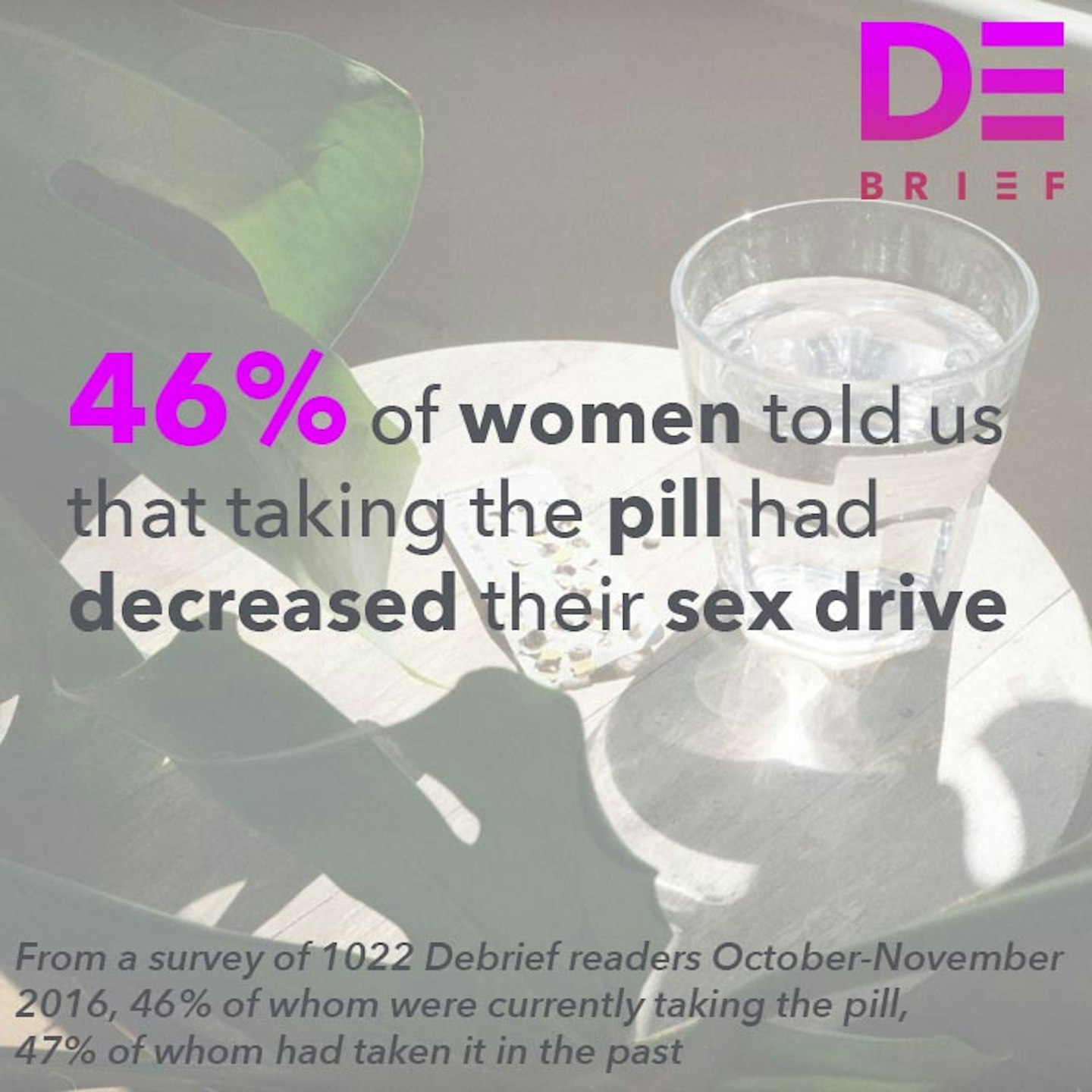 1 of 9
1 of 9Debrief Mad About The Pill Stats
 2 of 9
2 of 9Debrief Mad About The Pill Stats
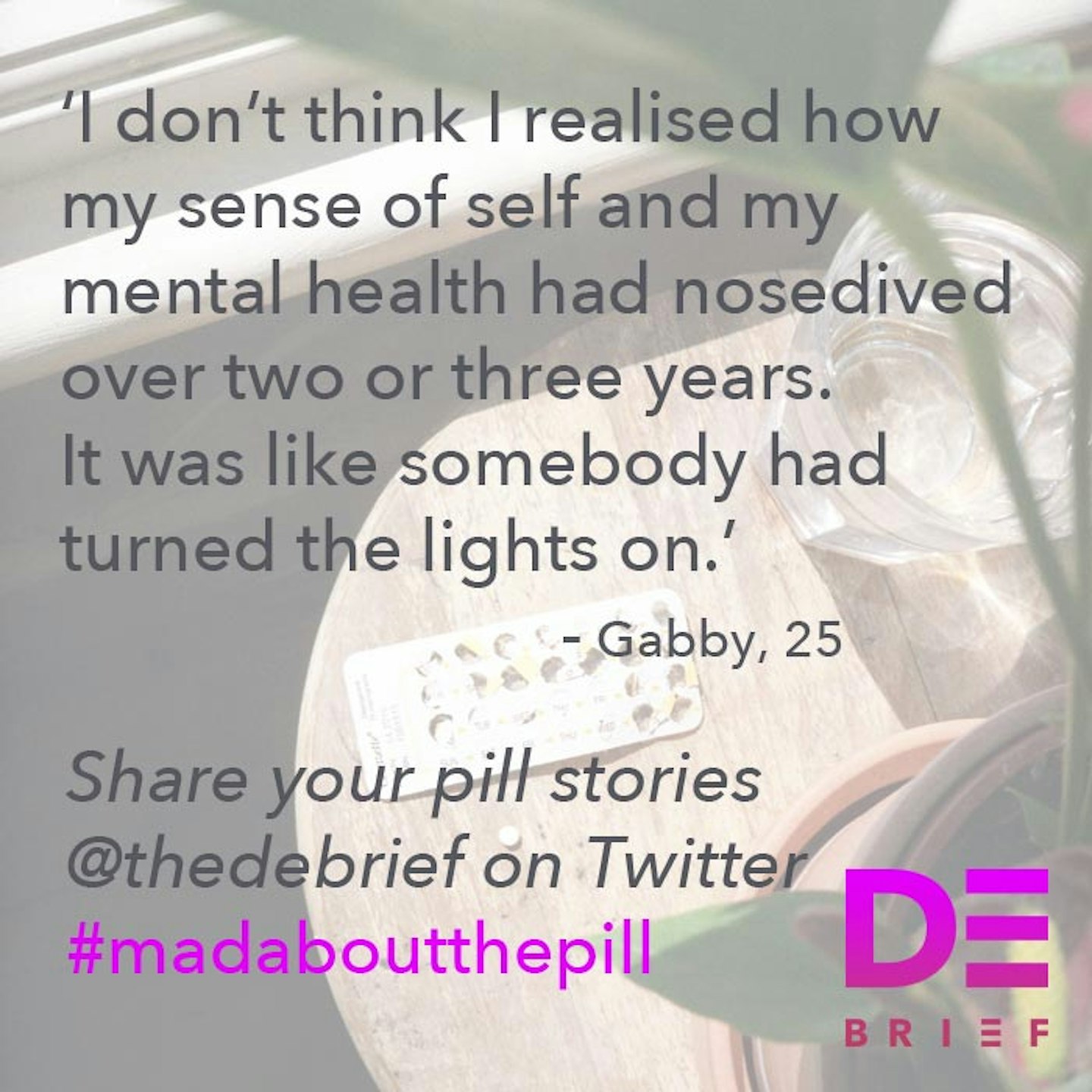 3 of 9
3 of 9Debrief Mad About The Pill Stats
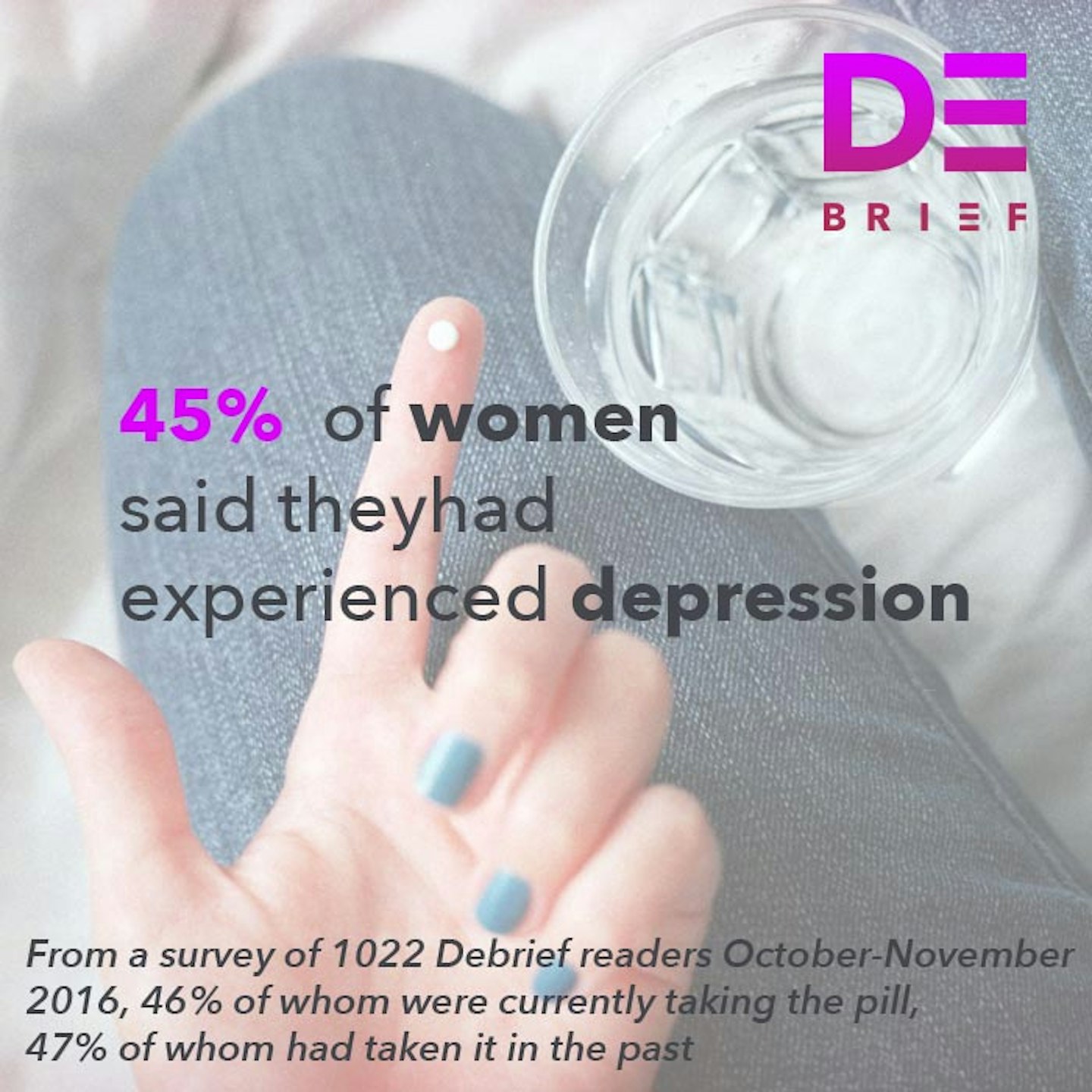 4 of 9
4 of 9Debrief Mad About The Pill Stats
 5 of 9
5 of 9Debrief Mad About The Pill Stats
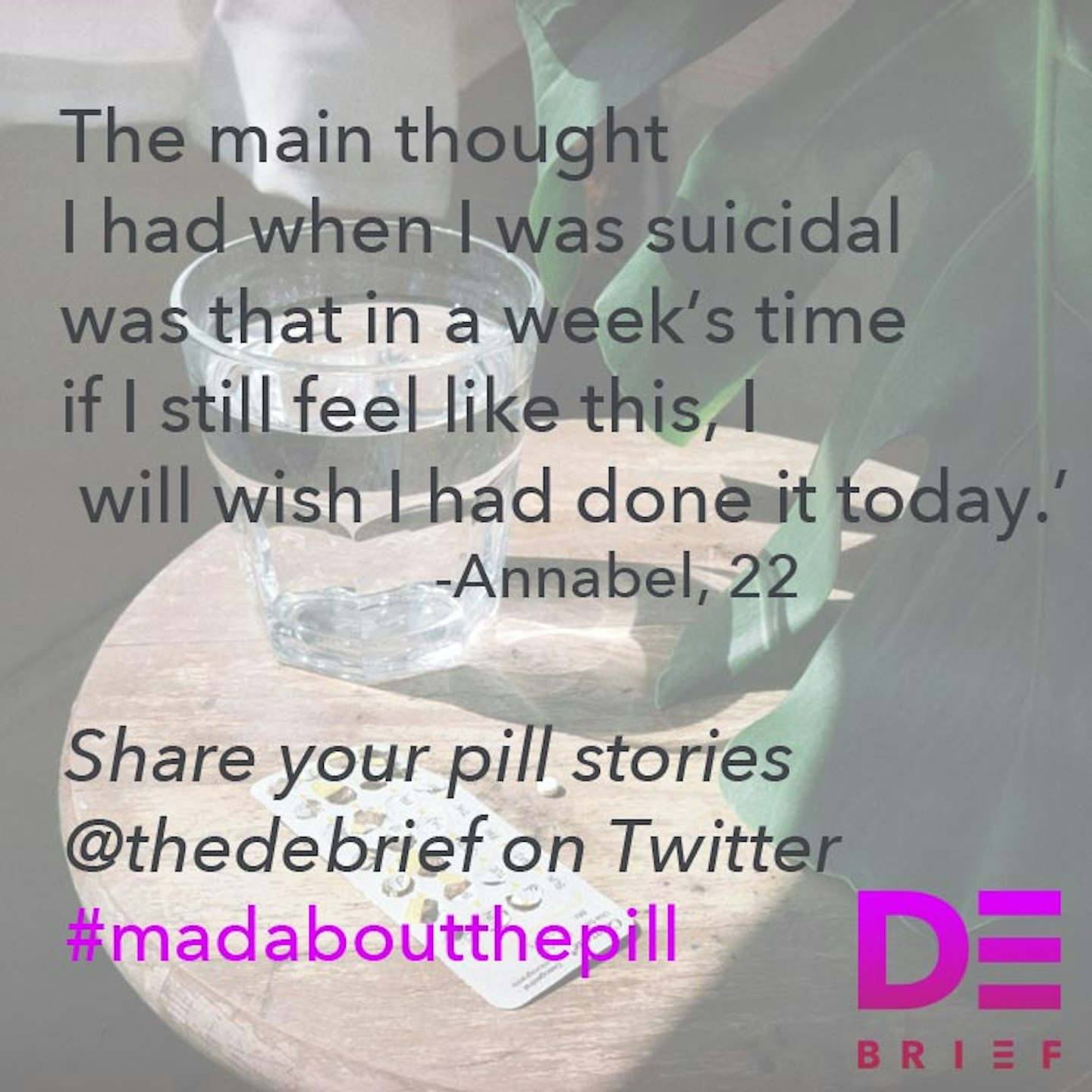 6 of 9
6 of 9Debrief Mad About The Pill Stats
 7 of 9
7 of 9Debrief Mad About The Pill Stats
 8 of 9
8 of 9Debrief Mad About The Pill Stats
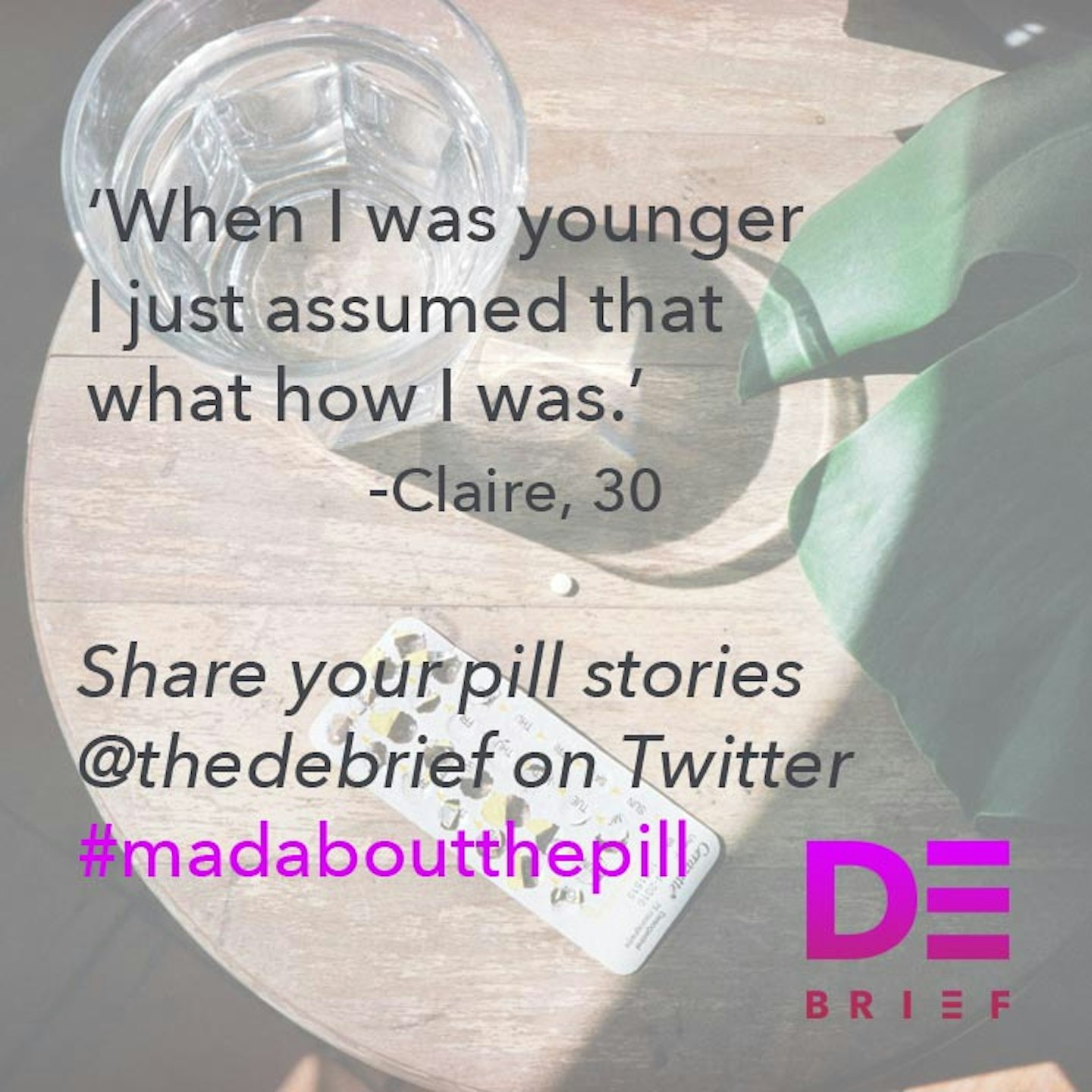 9 of 9
9 of 9Debrief Mad About The Pill Stats
I went to the GP more than ten times over the years with irregular bleeding (a common symptom of several gynaecological cancers) and was only taken seriously after I had become severely anaemic and it was found I now had two lumps, which had grown significantly. If I had been fully investigated when I was first found to have a growth in my womb, instead of assumptions being made and getting misdiagnosed, I would have been able to avoid a hysterectomy and still be able to have children. On top of a lower chance of survival this is one of the affects of late diagnosis of womb cancer that changes lives forever.
I have always been very maternal and saw myself having a big family, which is now an impossibility for me. Infertility is the gift that just keeps on giving, as I grow older and settle down, and my friends start families, the pain will only get worse. No matter how many years pass cancer will always have taken something away from me, something that early diagnosis could have saved.
Tracie Miles RGN, Phd. Information Specialist Nurse, The Eve Appealsays 'Lydia's story sends the message we The Eve Appeal passionately believe in GET BLEEDING CHECKED! …In other words any persistent, unexplained vaginal bleeding should be reported and investigated to find the cause. Whilst womb cancer in younger women is rare, Lydia’s case illustrates the importance of seeking medical advice'.
We need a culture shift within our health services to ensure that women are never let down as I was.
To find about more about womb cancer visit the NHS website
Follow Lydia on Twitter @lid_jar
This article originally appeared on The Debrief.
